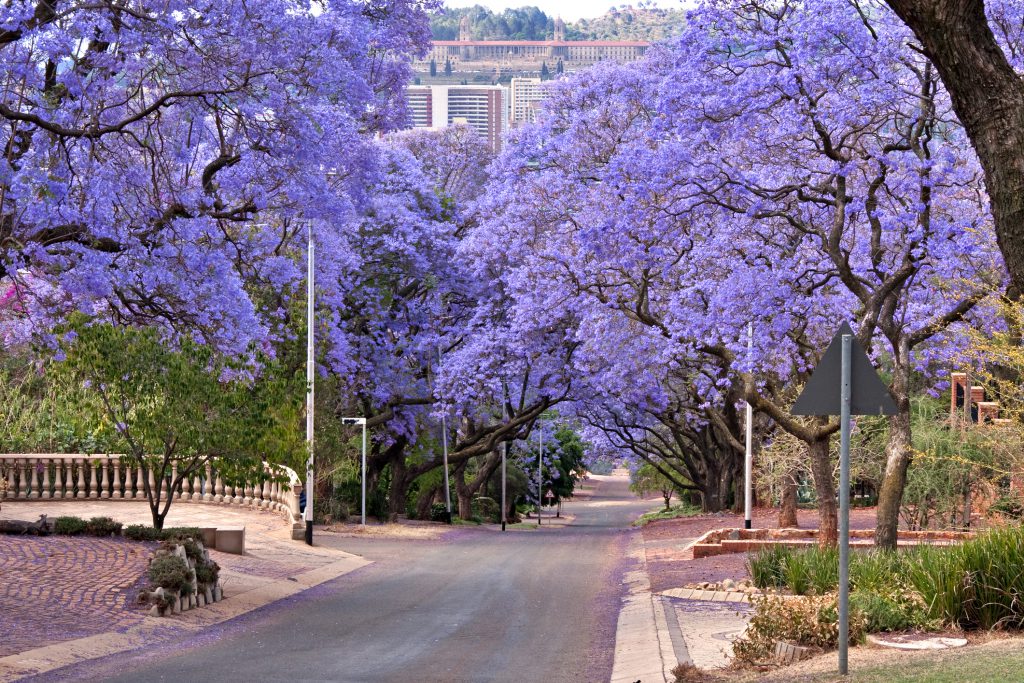Financial Mail Travel
Capital Gains
In “Snor City”, a song by the late James Phillips, the fictional Bernoldus Niemand walked the streets of Pretoria, looking for “net een skoon bo-lip” – just a single clean upper lip. Niemand’s apt observation poked fun at the moustachioed civil servants of Pretoria in the 1980s. Since then, it has become the city with two names – while some refuse to renounce the administrative capital’s connection with an Afrikaner folk hero, others have embraced “Tshwane”, signifying in some sense the city’s rebirth. Today, the moustache-brigade has given way to the stronghold of the ANC and foreign diplomats who enjoy the leafy, Jacaranda boulevards plus a younger crowd looking for hip, urbanised spaces to unleash and explore their creativity.
Urban development has been a buzzword in Tshwane over the last few years. The swanky Menlyn Maine precinct was designed according to New Urbanism principles with every convenience right on residents’ doorsteps. This development is one of the initial 16 projects in the Clinton Foundation’s Climate Positive Development Program created to support the development of large-scale urban projects designed to dramatically reduce greenhouse gas emissions in an economically viable manner.
“My background is in property, and I thought the Menlyn Maine concept would work,” says entrepreneur Nicholas Nolte who owns Mira Coffee, a container coffee shop in the precinct. He took a chance at the beginning of development when the foundations were just finished. “I had no company profile – I wasn’t a big chain like Starbucks, but I wanted in. So I had to prove myself first.” He opted to renovate
a container with the premise of laying claim to a space inside the Central Square when the build was done. But being “different” worked, and such was his success that he never moved – he’s still serving a daily fix to those working in and around the precinct.
Nolte happily names Tshwane’s many advantages: “The climate, the lack of ‘real’ traffic, the people, proximity to a number of great government schools, the tree-filled areas in which you can actually afford to live.”
But it’s not just the newly-developed hubs that are proving attractive. One development that’s helping to shift Tshwane’s image is 012central, a multi-space precinct in the CBD. People are flocking to experience its benefits. “These are people who by their own admission were previously averse to exploring the city centre as a result of their negative perceptions,” says Jeffrey Wapnick, managing director of City Property which manages 012central.
Wapnick believes there’s a colourful, multicultural scene evolving in the city. “Contemporary Pretoria is much more a melting pot of cultures, where top professionals, academics, government officials and the world’s second largest collection of diplomats meld together to create a city that is vibey yet understated, a unique combination of conservative and innovative approaches which coexist harmoniously against a laid-back and welcoming atmosphere that is unique to this city.”
Wapnick believes that Tshwane has many spaces – both old and new – that deserve attention. What’s required, he says, “is an investment with a longer term view on the impact thereof on the surrounding assets.”
In global terms, Tshwane has some ground yet to cover. The 2018 Innovation Cities Index lists Tshwane as number 445 out of 500 cities around the world (and the same index places it 26th among emerging cities in Mid-East, Eurasia and Africa). Johannesburg ranks 380 globally (number 12 in the emerging sector), whilst Cape Town is 265th globally (and third among emerging cities).
But with the involvement of skilled entrepreneurs, it might just get there. Lina Swart, who in 2013 started TEDxPretoria as a platform to showcase innovative ideas, says she’s witnessed an exciting shift in the city’s business climate. “The startup culture has certainly been picking up in the last couple of years with coffee shops morphing into co-working spaces and entrepreneurs considering it as an alternative to the hustle of Jo’burg. I’ve seen an increase of entrepreneurs in the food and beverage, e-commerce and technology spaces. There is also a big drive towards inner-city rejuvenation and I see gravitation of businesses towards the CBD.”
And there’s been an upwelling of support for local entrepreneurs, she says. “The narrative around government support for entrepreneurs is starting to change with hands-on support for startups on the rise in Pretoria.” As an example of structures that exist to support entrepreneurship in the city, she cites the Innovation Hub in Lynwood which focuses on science and technology and offers incubation and support services – especially to previously disadvantaged and youth-owned startups. She also says that the CSIR provides entrepreneurs with prototyping and research support, and the Department of Telecommunications and Postal Services (based in Hatfield) has been helping entrepreneurs gear up for the fourth industrial revolution.
Another entrepreneurship boost is provided by Google for Startups. They nurture startup ecosystems in 125 countries and have a Startup Grind chapter in the city. Monde Zuma, Pretoria chapter director, says that Tshwane has a “quite laid-back” attitude in terms of an entrepreneurial eco-system. “The drive that’s evident in Cape Town and Jo’burg is not here yet, but we’re working on it.”
The allure of the Jacaranda City might be lost on those living in cities with more lucrative business hubs or cities with a mountain and a seafront, but the small-town charm of Pretoria does the trick for many who’ve opted to settle in here for the long-haul. Brothers PJ and Geo Botha, wealth managers at Bovest Wealth Management, are big advocates for living and working in Tshwane. “Pretoria has many SMME’s, but larger companies are also opening up here, which is changing the face of business in Pretoria,” says Geo, who made the break from corporate Jo’burg. “I like the personal angle, that people really care how your weekend was. It’s not just in business, but a friendlier environment overall. It’s something to get used to.”
His brother agrees. “It’s so much fun living here,” says PJ. “So much fun that even people who work in Sandton choose to live here. They are willing to take on the Jo’burg traffic, because at the end of the day they can return here.”
He sees it as a great gateway city, too. Bushveld, game reserves and smaller getaway towns are all within easy reach. “It scales somewhere between ‘platteland dorpie’ and big city,” he says. And, in some sense, it’s the city’s hybrid nature and its more diminutive dimensions that give it its unique edge. Because, despite its size relative to Jo’burg, it is managing to attract ambitious and politically active young people from across the country. Which means that, if you’re willing to wait it out, and work at it, you will notice old Bernoldus Niemand’s moustache increasingly giving way to the hipster goatees as Snor City embraces change.






 Sign-up and receive the Business Media MAGS newsletter OR SA Mining newsletter straight to your inbox.
Sign-up and receive the Business Media MAGS newsletter OR SA Mining newsletter straight to your inbox.